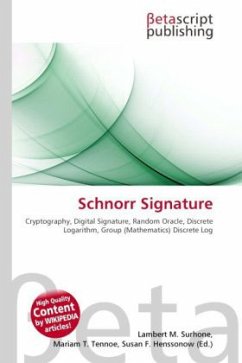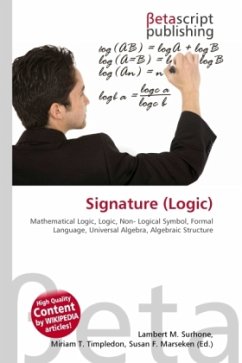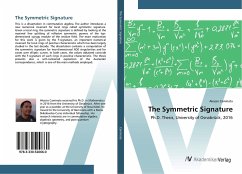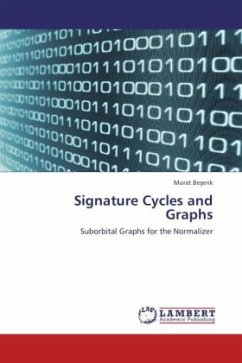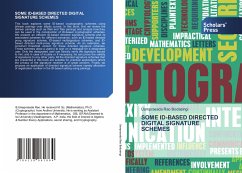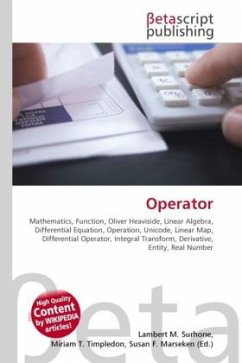
Signature Operator
Versandkostenfrei!
Versandfertig in 6-10 Tagen
19,99 €
inkl. MwSt.

PAYBACK Punkte
10 °P sammeln!
In mathematics, the signature operator is an elliptic differential operator defined on a certain subspace of the space of differential forms on a even dimensional compact Riemannian manifold, whose analytic index is the same as the topological signature of the manifold if the the dimension of the manifold is a multiple of four. It is a instance of a Dirac-type operator. A differential form of degree k, or (differential) k-form, on a smooth manifold M is a smooth section of the kth exterior power of the cotangent bundle of M. The set of all k-forms on M is a vector space commonly denoted k(M). ...
In mathematics, the signature operator is an elliptic differential operator defined on a certain subspace of the space of differential forms on a even dimensional compact Riemannian manifold, whose analytic index is the same as the topological signature of the manifold if the the dimension of the manifold is a multiple of four. It is a instance of a Dirac-type operator. A differential form of degree k, or (differential) k-form, on a smooth manifold M is a smooth section of the kth exterior power of the cotangent bundle of M. The set of all k-forms on M is a vector space commonly denoted k(M). Differential forms provide a better definition for integrands in calculus, such as (x) dx (a "1-form") or (x, y, z) dx dy dz (a "3-form"), but their uses extend far beyond elementary calculus. In fact, the set of all forms on M (denoted (M)) is an algebra, so some (but not all) higher dimensional forms can be obtained from lower dimensional forms via multiplication in this algebra. Moreover,there is map from k(M) to k+1(M) given by a generalization of the differential from elementary calculus.





